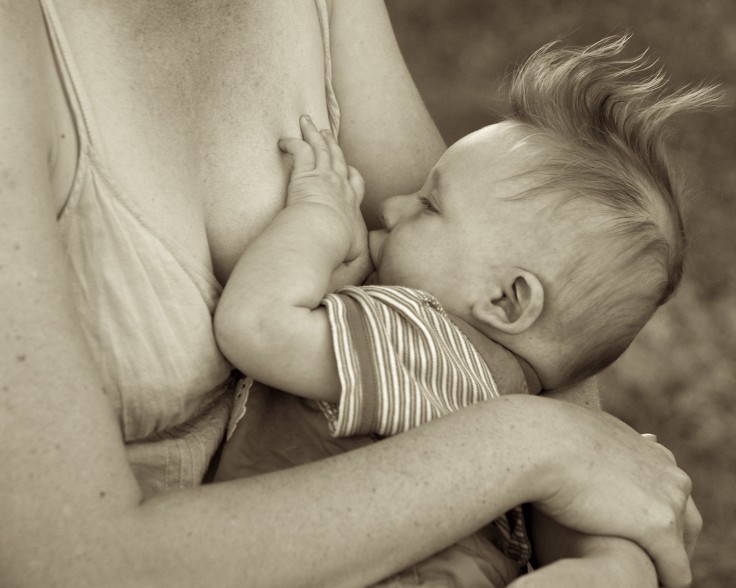
More than 8 in 10 mothers in the United States breastfeed their babies at birth. Still, many of these moms stop breastfeeding earlier than recommended. Nursing moms wonder how long to breastfeed their babies. Further, moms need an action plan when they start weaning their babies.
How Long to Breastfeed: Experts Say for as Long as You Can
The World Health Organization (WHO) and the American Academy of Pediatrics (AAP) recommend exclusive breastfeeding for the first six months of life. Further, mothers are encouraged to continue breastfeeding in the first year of life-or as long as mutually desired, along with the introduction of solids.
However, only one-third of moms are said to follow the recommended timelines for breastfeeding, Parents reported. Only 36% of moms continue nursing for the recommended time. Yet, some moms also desire to breastfeed their baby beyond the one-year guideline. Extended breastfeeding is not prohibited as it has plenty of benefits, including mom-child bonding, brain development, and immunity.
Why Moms Start Weaning from Breastfeeding
Many moms choose to breastfeed their babies at birth for its many benefits. Along their breastfeeding journey, moms may encounter problems that lead to weaning earlier than anticipated. These include:
- Latching problems
- Persistent breastfeeding pain
- Milk supply problems
- Shorter maternity leave
- Return to work
- Personal decision to stop breastfeeding
- Lack of support
Some Moms Feel Like a Failure When Weaning from Breastfeeding
When a mother realizes she cannot breastfeed or needs to stop breastfeeding earlier than she wanted to, these can have mental health impacts on her. Research shows weaning breastfeeding problems can include the mom feeling shameful, guilty, and feeling like a failure.
Weaning from breastfeeding can also trigger postpartum depression (PPD). Mothers must receive support during and after weaning their baby.
What Happens When Weaning Your Baby?
When weaning from breastfeeding, mothers can experience massive hormonal shifts. This is because breastfeeding releases oxytocin and prolactin in mothers. These two hormones are necessary for milk production. Oxytocin is the feel-good hormone created during this bonding moment with the baby. Prolactin improves the mood and decreases feelings of stress and anxiety.
During weaning, these hormone levels decrease, and estrogen increases. Estrogen causes breast tenderness and swelling. The decrease in the two primary hormones can make the mom feel less calm, more irritable, and anxious.
ALSO READ : Baby-led weaning pros and cons
What to do with Sadness When Weaning Breastfeeding?
Moms need to monitor and care for their mental health while weaning from breastfeeding. Here are some tips that can help moms when weaning:
Validate Your Feelings
It is not unusual for weaning breastfeeding moms to feel sad, tearful, or mildly depressed after weaning, Motherly revealed. It is essential to acknowledge any feelings of guilt, shame, disappointment, or sadness. Pay close attention to symptoms of depression, including persistent feelings of sadness, hopelessness, loss of appetite, and rejecting your baby. Connect with other moms who share similar breastfeeding experiences so you can get the support that you need.
Wean Slowly
It will help both you and your baby when you do not try to stop breastfeeding abruptly. If possible, wean slowly to prevent major hormonal shifts. You can continue breastfeeding 1 to 2 times a day until your baby is fully-weaned.
Increase Cuddle Time
You can continue bonding with your baby by cuddling and snuggling more and longer. Holding your baby does release the feel-good hormone oxytocin.
Indulge in Self-Care
Focus on your mental health when weaning from breastfeeding. New moms can practice self-care when listening to uplifting music, meditating, getting a massage, or getting outside for walks. You can ask for help to look after your baby, so you can make time for caring for yourself.
Remember You are a Good Mom
Remind yourself of all the other ways you are a good mother to your child. Your baby loves you and will thrive no matter how they are nourished. Being honest about your feelings and talking about them with your loved ones and medical health specialists can help avoid a rapid mental health decline.